
Peter Hayes: “I don’t have a huge vocabulary and that becomes an issue.”
With new album ‘Wrong Creatures’ on the horizon, we catch up with the alt-rock trio’s founding member, singer and guitarist
The leather clad arrival of Black Rebel Motorcycle was one of the first signs that music was about to take a turn for the better in the early noughties. Peter Hayes, Robert Turner (now Robert Levon Been) and Nick Jago’s sound built on the hazy drone of The Jesus & Mary Chain and early Spiritualized whilst adding some garage spirit of their own. Their self-titled debut was an alt-rock masterpiece, containing anthems such as Spread Your Love and Whatever Happened To My Rock ‘N Roll (Punk Song) and even though its 2003 follow up Take Them On, On Your Own didn’t quite live up to its predecessor’s pounding energy, it still offered more than a sprinkle of piss and vinegar. 2005’s Howl revealed another side to the group, a classic Americana heart underneath their nicotine-stained skin.
After Jago left in 2008 (not for the first time but seemingly for good), the newly settled line-up of Hayes, Levon Been and replacement drummer Leah Shapiro continued to make consistently brooding albums with Beat The Devil’s Tattoo and Specter At The Feast. Next month sees BRMC release their eighth studio album, Wrong Creatures, the culmination of a writing and recording period which began in the summer of 2015. Produced by Nick Launay (Arcade Fire and Nick Cave & The Bad Seeds), the record’s deep groove will delight fans old and new, blowing away any January blues.
We caught up with singer/guitarist Hayes during the Belgian leg of their tour to find out a little more…
Is songwriting something that you enjoy talking about?
“Yes. It comes and goes as far as which areas are easier and harder. Sometimes the lyrics come easy and it’s all nice and smooth and other times the words become the most frustrating part and it feels better not to jabber over the top of the music. Sometimes it can become tough trying to vocalise an emotion so it can be easy to do music without the lyrics. It comes and goes.”
Which way round was it for Wrong Creatures?
“I felt like I struggled a bit more with words on this album. I was trying not to overcomplicate things with some of the songs that I was singing and trying to not be too wordy. The music came really easy on this one, rather than the words.”
Can you put your finger on why you think that was?
“I ask myself the same question. Part of it is just beating the crap out of yourself and feeling like you’re not wanting to repeat yourself. At the same time I felt like I let myself get a little too caught up in the jabber of the world. So many things are distracting and I let myself get distracted too much. That happens on all the albums but it seems to be getting worse and worse, but I’m learning to not let myself get too distracted and ignore those bits of information that seem important but aren’t necessarily all that important.”

Hayes: “Our most Americana song Ain’t No Easy Way was written in a stairwell in England.”
In order to not repeat yourself, do you have to be consciously aware of your own back catalogue when writing new material?
“There are certain phases that I am certainly conscious of having been repeated in different ways. I don’t have a huge vocabulary and that becomes an issue. When you run out of your own vocabulary then you tend to be repeating yourself constantly. But at the same time I’m not going to go digging through the dictionary to try to come up with fancy words.
“I find there’s often a similar theme, but I’m okay with that. I’m okay with the conversation that goes on in my own head and repeating that, because I see that as the only way to move past your own ideas of what you think the world is. If you’re not having that conversation then I think you’re kind of stuck. If I’m not questioning my own ideas of what the world is supposed to be or what I’m supposed to be in the world then it doesn’t feel like I’m doing my job as a human.”
Does having a public outlet for those conversations make them easier or harder to have?
“In the moment that a song is coming, it’s definitely a catharsis. I’m not even sure what that word is but it’s a release of emotion. In the moment it’s definitely that and then what makes it interesting is that connection with strangers. Moment-to-moment and day-to-day it’s changing. Take the lines from the first album: ‘Now she’s gone love burns inside me’. One way of seeing that is as a longing and a wanting and then another way is ‘Thank fuck she’s gone’. You know, it’s saying, ‘Now I can have love because she was sucking it all out of me.’ That changes from night to night and from line to line sometimes. It’s a little scatter-brained but I enjoy that part of it. That’s what makes it liveable and makes us able to play it live.
“As far as anybody connecting with it, I feel that whatever level the listener wants to go to then that’s their responsibility. I’m not going to hold anybody to any sort of level of where to go with the song, because I don’t always feel like going to a new level with songs, it’s sometimes just background noise. So I’m not going to judge anybody for that. Sometimes I want to fucking forget about the world and I don’t really care what somebody’s singing, so I guess that’s the way I look at it and I like looking at it that way – for now at least.”
Do you have to be in a specific head space or location to be able to write?
“It seems to be anywhere. One of the weirdest things was our most Americana song Ain’t No Easy Way was written in a stairwell in England. I believe it was in London but I don’t know exactly which stairwell it was. I don’t know why that was. We were living in England and I don’t know if it was some subconscious longing for America. Devil’s Waiting too actually, that was also started in England. They were finished in Philly back in America but those ideas had started before that.”
So what’s the next step when you have those ideas and are planning a new album? Do you all work together or bring your individual songs into rehearsals?
“The majority of the sound on this album, more so than I think the other albums, came out of rehearsal jams and soundchecks while we were on tour. It came out of hour-and-a-half or two-hour jams and cutting them down to five or six minutes. We kind of play and get an idea going and then a lot of the time we don’t even have the words finished by the time we record it, we’re still working on words even after we’ve already laid it down.”

Peter: “I find there’s often a similar theme, but I’m okay with that.”
Do you and Robert take it in turns to come up with lyrics, how does that part of the song normally take shape?
“We usually sing what we write, that’s how it normally works out. Even when it’s choruses and verses, if we’re working on a song we don’t necessarily sit down and have a conversation about it. Sometimes we have but I don’t necessarily like that, because I just like the idea of the songs having the two different places. If you sit down and think about it too much it can sometimes get in the way. I like the way of having two different aspects without us having to force it, forcing the story, but we have done that. We usually end up asking each other what we’re writing about if we’re both having trouble finishing some lyrics, ‘are you talking about this?’ ‘yeah I’m kinda talking about that, but I’m also talking about this.’ That helps to push an idea and that’s the kind of conversations we have.”
Why do you think your partnership has endured for so long now?
“I think it’s because we’re trying to check our own egos at the door and we don’t try to force each other. It’s what I was saying; we don’t force each other’s lyric writing into fitting our idea of what a song should be, or my idea of what a song should be. Take Punk Song, he came up with a chorus and that’s all he had and if I had then tried to force Rob into ‘No, the song’s about this and the verses are about this,’ or ‘You have to keep it this way and I’m right because I know what this song should be like,’ that’s just my fucking ego thinking that I know what it should be. I try to get rid of that as much as possible and stay out of the way of the song and another person’s interpretation of it.”
How did working with Nick Launay differ from producing your own albums?
“The word ‘producer’; there’s different levels of how you can interpret that word. What was cool with Nick is that he wasn’t trying to overtake or say that he had some sort of vision for the album that he was forcing us to go down. It was very collaborative as far as I felt like we gave him a good amount of room to have his opinions and he gave us room to keep ours. There were definitely arguments and disagreements along the way but we worked through it. He took his time and gave us a lot of moral support. We started losing the plot a bit at times and he was helpful with that, just going ‘Come on guys, you’re almost there.’”
Lastly, ahead of its release, how do you feel about Wrong Creatures now?
“With every album, once I don’t have a choice in the matter anymore on what it’s going to sound like, I put it to bed and I do not listen to it again unless I’m going back to remember a part. I have to live that way because I can’t listen to it without going ‘Fuck, I wish I would have done that,’ or ‘I shouldn’t have said that,’ so then everything moves on to the interpretation for the live show. Every album, that’s how I’ve had to treat them.”
Interview: Duncan Haskell
Wrong Creatures will be released on 12 January. For all the latest news, head to blackrebelmotorcycleclub.com



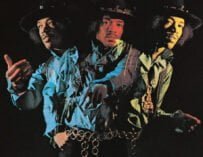


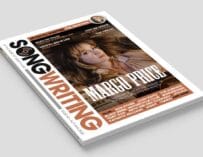


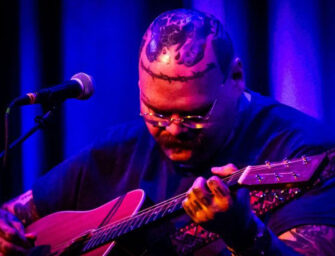
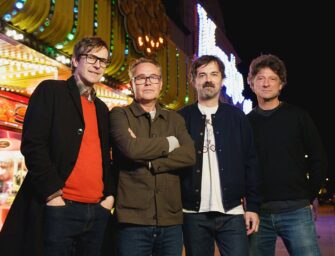

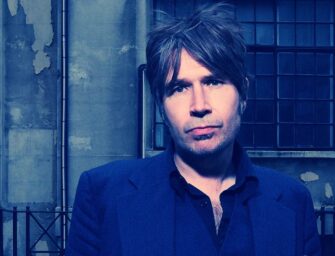




















Really nice questions (and responses!) – thank you
agreed!
fantastic interview